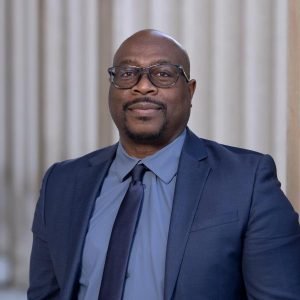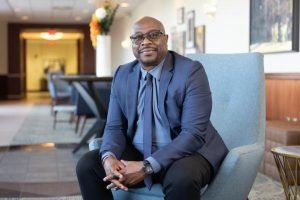Commit
Using “commit” emphasizes a pledge to prioritize antiracist efforts in making SPH a more welcome, equitable, and just organization.
How are you committing on a daily basis (professionally and/or personally) to antiracism?
“Personally, I am dedicated to actively educating myself about the historical and contemporary contexts of racism and reflecting on my biases. Professionally, I integrate antiracist practices into my research, teaching, and community engagements. For instance, I ensure that my research and evaluation designs are inclusive, and that my teaching materials reflect diverse perspectives. I engage in conversations about race and equity with families, friends, and colleagues to promote a deeper understanding and commitment to antiracism in all aspects of my life.”
 How do you stay committed to antiracism?
How do you stay committed to antiracism?
“As an advocate for health equity, I focus on community-engaged research, maternal and child health epidemiology, and understanding the biological impact of racism and marginalization. These interests have grown from my extensive medical and public health training and unwavering dedication to bridging health disparities. To stay committed to antiracism, I actively seek opportunities for learning and growth, such as attending workshops, reading literature on racism and equity, and engaging with communities. I also regularly evaluate my professional practices and seek feedback from colleagues and community partners to ensure that my work aligns with antiracist principles. This process of reflection and adaptation helps me remain accountable and committed to creating a more just and equitable society.”
Challenge
We are “challenged” to accept that racism exists and to “challenge” it when we see it.
What challenges do you face in prioritizing antiracist efforts?
“I am proud to have earned an MD, a PhD, and an MPH from different institutions and to have garnered experience working with four incredible learning institutions. Over the past 24 years, my focus has been on conducting research that actively involves communities and aims to improve the health outcomes of marginalized groups. Throughout my educational and professional journey, I have observed that one of the significant challenges in prioritizing antiracist efforts is navigating institutional resistance and systemic barriers within academia and public health. Addressing these challenges requires a collective effort, including securing funding, addressing implicit biases, and overcoming long-standing institutional practices. Balancing the demands of professional responsibilities with the time and emotional labor required for antiracist work poses its own set of challenges.”
What antiracist change have you been excited to see happen at SPH the past few years, if any? What change do you think we need to see at SPH?
“Ever since I joined the University in 2022, I have been delighted to witness SPH’s heightened focus on diversifying faculty and student bodies, integrating antiracist content into our curriculum, and forging partnerships with community organizations to tackle health disparities. It is imperative that we continue to make more structural changes, such as implementing transparent and equitable hiring practices, providing increased support for underrepresented students and faculty, and establishing mechanisms for accountability in antiracist initiatives.”
Change
We have to be willing to “change” and shift our beliefs, attitudes, and actions toward equity and justice.
What impact do you think the school can have on racism?
 “Our school must actively integrate antiracist principles into all of our operations to set an example for other institutions and contribute to a broader societal shift towards equity and justice. Additionally, our school should expand our research efforts on the profound effects of racism on public health and equip our students to confront health disparities through comprehensive training. Through these endeavors, the school can advocate for policies that prioritize and actively work towards promoting antiracism and health equity.”
“Our school must actively integrate antiracist principles into all of our operations to set an example for other institutions and contribute to a broader societal shift towards equity and justice. Additionally, our school should expand our research efforts on the profound effects of racism on public health and equip our students to confront health disparities through comprehensive training. Through these endeavors, the school can advocate for policies that prioritize and actively work towards promoting antiracism and health equity.”
What is the most important ingredient for culture change in our school and as a community?
“The foundational element for instigating a transformative cultural shift lies in a wholehearted commitment to listening to and centering the voices of individuals most profoundly affected by racism and inequities. This involves establishing deliberate spaces for candid and open dialogue, demonstrating a willingness to confront and address uncomfortable truths, and upholding personal and institutional accountability for effecting substantive changes. Furthermore, ongoing education and training focused on antiracism, coupled with the implementation of transparent and equitable policies, are paramount for initiating and perpetuating this evolution in our school’s culture.”
“Building Equity, Driving Justice: Commit | Challenge | Change” — ties all communications related to the SPH Strategic Plan for Antiracism together under one look and feel. The theme showcases our guiding principles, and it motivates and inspires. "Agents for Change" profiles support this theme and all interview questions are related to the action words, Commit, Challenge, Change, as described above.
Submit an idea for this profile series — either your own story, or one that inspires you from another SPH individual or group.

